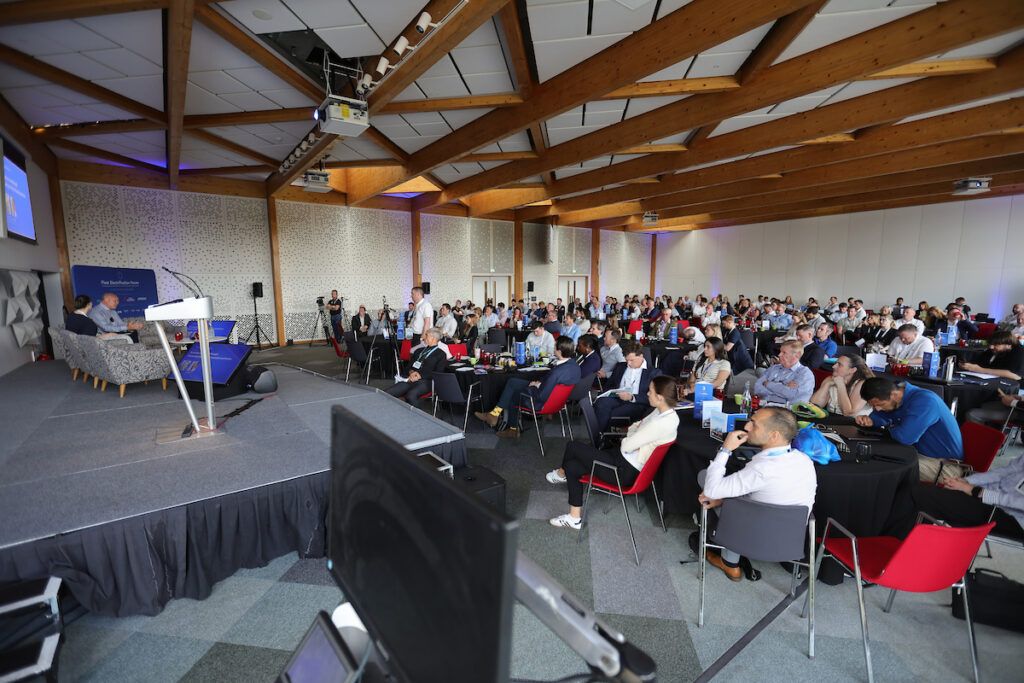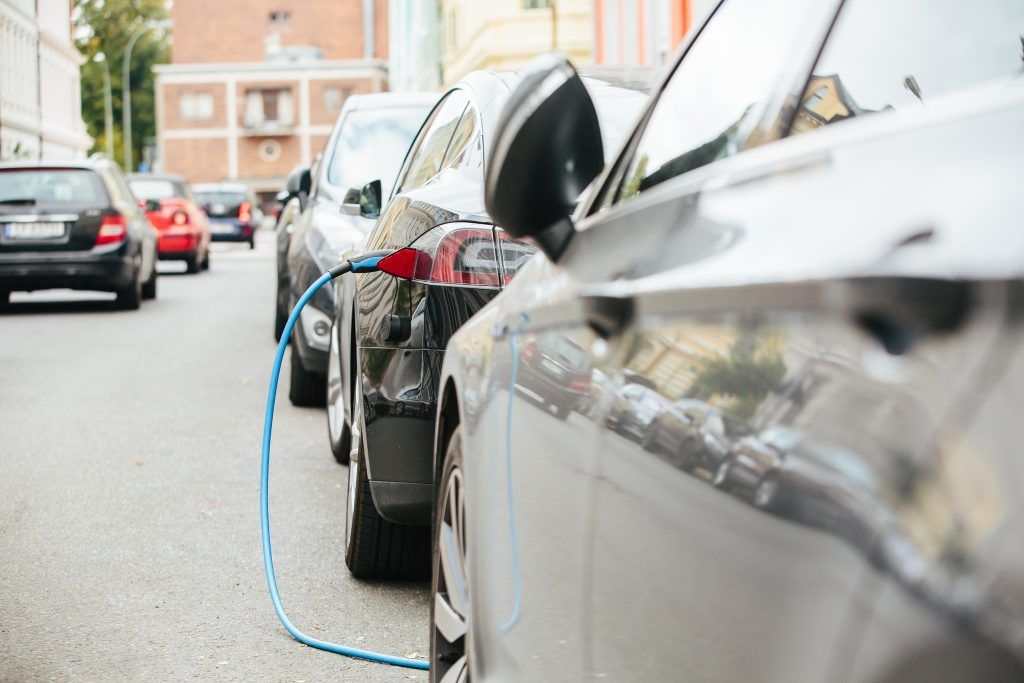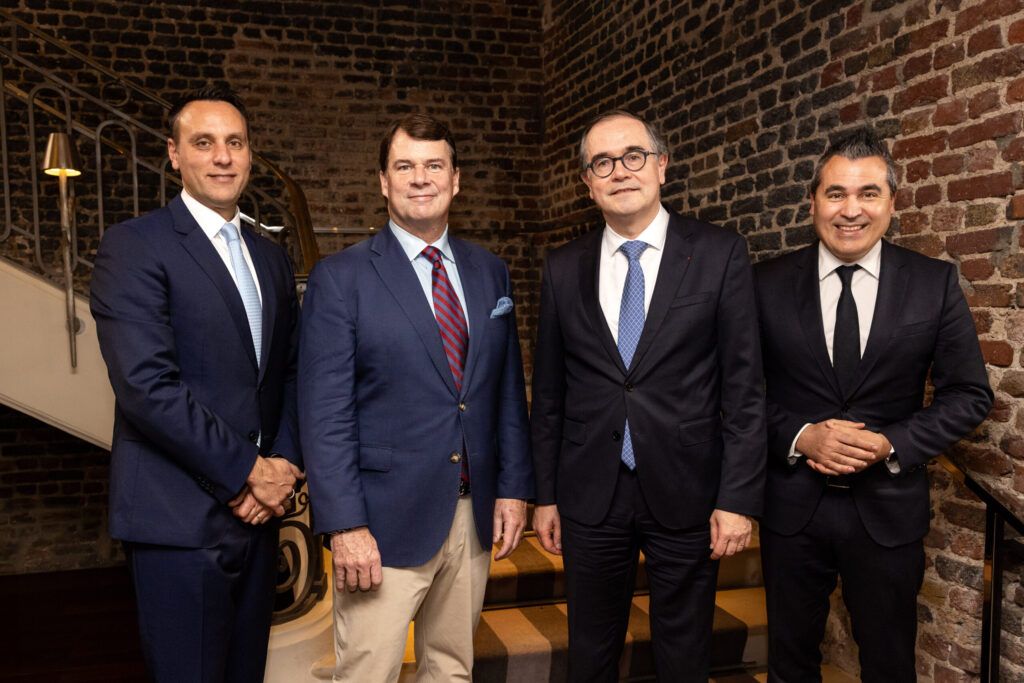A communiqué issued by UK100 and signed by a group of 32 cross-party Mayors and local leaders has called for local and regional authorities to have more powers to deliver Net Zero emissions.
The leaders have called for new powers and resources to be devolved from Whitehall to shape local energy markets, decarbonise transport and tackle emissions from homes and offices.
The joint communiqué, which was signed at UK 100’s International Net Zero Local Leadership Summit on Tuesday (13 July), provides concrete examples of urgent policy changes that would help local and regional authorities deliver Net Zero. These include:
● A clear and long-term plan and resources for the decarbonisation of new and existing buildings and homes
● Setting up strategic energy bodies or similar mechanisms to address market failure in energy systems, with a duty to co-operate between public bodies and the companies that run our energy infrastructure.
● Reducing the high costs of connecting electric vehicle charging networks to the grid
● A clear target must be added to the Environment Bill to reverse the decline in species andhabitats by 2030
● Ensuring the new UK Infrastructure Bank has a Net Zero mandate to deliver local investment inNet Zero projects
The above measures would be facilitated by a new Net Zero Local Powers Bill to cement new powers for local and regional authorities alongside new reporting requirements on emissions. The signatories included 32 Mayors and Leaders from major cities and urban areas like the West Midlands, Glasgow, Cardiff, London, Greater Manchester, Liverpool, Leeds, Bristol, Newcastle as well as rural areas like Cambridgeshire, South Gloucestershire, the West of England and Cornwall.
The Climate Change Committee recently estimated that local authorities can influence around one third of the emissions in their local areas through place shaping and partnerships. Local and regional authorities are already delivering new approaches that demonstrate the value of locally based solutions: from transport infrastructure and decarbonisation to retrofitting homes and developing smart energy solutions.
The call for ‘strategic energy bodies (or similar mechanisms) to address market failure’ would ensure a duty of collaboration between public bodies with responsibilities around waste, transport and planning – like local councils – and the energy infrastructure companies known as ‘distribution network operators’ (DNOs).
The West Midlands has been pioneering a collaborative approach to energy systems, distribution and management which resulted in its ‘Net Zero Pathfinder’ proposals recently submitted to Government. These not only seek new responsibilities, powers and resources to secure wide scale building retrofit and new measures on energy levies but also form the basis of the governance model proposed in the communique.
Andy Street, Mayor of West Midlands, said: “Climate change is a global emergency, and we know that every region and city across the world is going to have to play their part in tackling it. That’s why I’m really pleased that the West Midlands, in partnership with UK100, has been able to bring local leaders together today to discuss our role in this looming crisis. Here in the UK, the Government has set out ambitious targets to achieve net zero by 2050, and we want the West Midlands to play its part in that by meeting our net zero target by 2041.
“As part of our #WM2041 net zero plans we’re already delivering practical change – from decarbonised transport and energy system solutions, to state-of-the-art battery technology and zero-carbon building techniques. Now, alongside other UK leaders, we’re asking ministers to give us the powers and the funding to do more. We want to work hand-in-glove with Government to accelerate the drive to Net Zero.”
Polly Billington, CEO of UK100, said: “We need a power shift from central government to local communities to tackle climate change. Local leaders are more trusted, more accountable and in the case of the UK100 – more ambitious in accelerating the path to Net Zero.”
Alok Sharma, President-Designate of COP26, told the conference: “The Paris Agreement is a treaty between countries. To put it into effect, we need local government on board. That’s why cities are vital to COP26 – the most important climate conference for some years. We must halve global emissions by 2030 and that means taking action now.
“COP26 must be the moment that every country and every part of society embraces the responsibility to protect our precious planet. Local action is absolutely vital – generating over 70% of the world’s carbon emissions, cities will determine whether we can achieve Net Zero.
“We’re urging all cities and regions to join the Race to Zero – the United Nations campaign to reach Net Zero by 2050 at the latest. I’m proud that cities and councils from all over the United Kingdom have signed up from Newcastle to Nottingham from Cambridge to Cornwall and of course, the West Midlands.”
Eric Garcetti, the Mayor of Los Angeles and Chair of the C40 Cities Climate Leadership Group, said: “The climate crisis isn’t limited by any municipal boundary or national border, so our solutions can’t be limited either. Our goal is to mobilise at least 1,000 cities ahead of COP26 to commit to achieve net zero by 2050. We’re also pushing our nation states to be more aggressive when it comes to targets and funding, and with the help of UK100 we already have over 700 cities on board.
“Cities can’t reach net zero alone, we need help from national and international leaders to turn climate plans into climate reality. Without the necessary support we’ll miss the opportunity to leverage the real power of cities, to drive the national and global climate action on which our planet’s future depends.”
Sadiq Khan, Mayor of London, said: “This year the UK will be centre stage in hosting COP26 and, like everyone else who cares about our planet’s future, I’m hoping it will be a major success. In London, I already have a bold programme of climate action underway, underpinning my ambition to make our city net zero by 2030. That includes the extension of the Ultra Low Emission zone, supporting the development of new net-zero communities, and accelerating a retrofit revolution in London to better insulate homes and reduce energy usage.
“London has the third highest level of fuel poverty in the country which is why I want to work with Government and London boroughs to ensure funding programmes meet the scale of the challenge. We must treat energy efficiency as an infrastructure priority and rapidly increase investment in retrofitting buildings, which will create jobs, help tackle fuel poverty, and support a green and fair recovery from this pandemic.”
Cllr Susan Aitken, Leader of Glasgow City Council, said: “It is cities and local leaders that are pushing to not only address the climate emergency; but reshape our economy to put people and the sustainability of their jobs, homes and communities first.
“We’re happy to play that role but, to succeed, we need the right tools – powers and resources that, right now, are held too far away from where they can be effective.”
Tracy Brabin, Mayor of West Yorkshire, said: “Local leaders need the powers to tackle the climate emergency. Working with other UK100 members, we have a bold ambition to make West Yorkshire a net-zero carbon economy by 2038, with significant progress by 2030. We’re up for the challenge, but we need a new devolution settlement before the climate change summit in Glasgow in November. With the world watching, the Government has a huge opportunity to unlock the potential of local and regional authorities to deliver Net Zero.”
Steve Rotheram, Mayor of Liverpool City Region, said: “The pandemic might have dominated our attention over the past year, but the climate emergency remains the biggest long-term challenge our region – and our planet – faces. Since I was elected, I’ve made tackling climate change a priority. But to make the biggest impact possible, we need the government to give local leaders the powers to really tackle the climate emergency.
“We were the first combined authority in the country to declare a climate emergency, have ambitious plans to double the number of green jobs in our region and be Net Zero by at least a decade ahead of national targets. We are also working on a world-leading scheme to harness the power of the River Mersey to provide enough clean, predictable energy to power 1 million homes.”
Marvin Rees, Mayor of Bristol, said “We need to urgently tackle the climate crisis and drive a just transition. As the first city in the UK to declare a climate emergency and an ecological emergency, and as a city committed to delivering the Sustainable Development Goals by 2030, we know that there are opportunities to create greener, decent jobs, that deliver climate action. As we rebuild, recover and reconceptualise cities after the pandemic world Local leaders need powers and resources from government to make these opportunities a reality.”
Cllr Lucy Nethsingha, Leader of Cambridgeshire County Council, said: “The communiqué we’ve signed calls for giving local authorities the power and resources to decarbonise new and existing buildings and homes. We’ve achieved a lot in Cambridgeshire already and our Swaffham Prior project will move an entire village from gas to renewable power, but we need more support in order to scale up our investment in decarbonisation to ensure all our villages, towns and cities can do the same.”
Cllr Huw Thomas, Leader of Cardiff City Council, said: “Cities are critical in the race to Net Zero. We are prepared to do our bit by accelerating our ambition to meet the climate change challenge head on. One Planet Cardiff is the Council’s vision for a carbon neutral city and organisation by 2030, and is our strategic response to our declared Climate Emergency.
“Work is progressing on the One Planet Cardiff Strategy which proposes a wide range of ambitious actions to form the basis of a delivery plan to achieve Carbon Neutrality. It aims to do this in a way that supports new green economies and greater social wellbeing in the city. We have already started by reducing our citywide per capita emissions by 47% and absolute emissions by 39% since 2005. But we need new powers and resources from central government to go further so that every community and every member of society can play our part in protecting our planet.”
Cllr Phelim Mac Cafferty, Leader, Brighton & Hove City Council, said: “It’s clear that in the UK it is local councils, cities and regions which are leading the way on climate action. We will be able to go so much further, and so much faster when this is recognised and properly resourced. And this is precisely what this important report argues from UK100.”
“In Brighton & Hove we’ve been laying the foundations to decarbonise our city. Our carbon neutral plan sets out the bold steps we will take to achieve net zero across all sectors, including energy, housing, transport and the circular economy, working with local communities and organisations. Projects already underway include rewilding of open spaces; carbon sequestration through tree planting and restoring the kelp farm; trailblazing new work on hydrogen energy for transport and insulating all of the council’s housing stock – over 11,500 homes. It’s time to give the decision-making powers to local areas so that communities can deliver meaningful change and develop the creative and innovative work already underway in the nine years we have to make a difference.”
Lezley Picton, Shropshire Council’s Leader, said: “Climate change represents a significant strategic risk to Shropshire and to the delivery of the full range of council services. Addressing the impact of climate change has been adopted as one of the Council’s key operational principles and is being embedded as a normal part of the Council’s corporate governance systems.
“Although the Council’s own operations account for only around 1% of Shropshire’s carbon footprint, we’re working in partnership with many local businesses and communities to develop a wide range of carbon management projects and initiatives which will help them to reduce their contribution to the carbon footprint of the wider county, as well as ‘leading by example’ by improving our own performance.”
The joint communique also calls for Government to work in partnership with local and regional leaders to develop a consistent, long term plan for decarbonising homes and buildings, which should at least meet the manifesto commitment of £9bn public investment to deliver Net Zero in our homes and buildings and should seek to leverage further private investment to meet this goal.
UK100 is the only network for UK locally elected leaders who have pledged to play their part in the global effort to avoid the worst impacts of climate change by switching to 100% clean energy by 2050.
Image: Shutterstock








